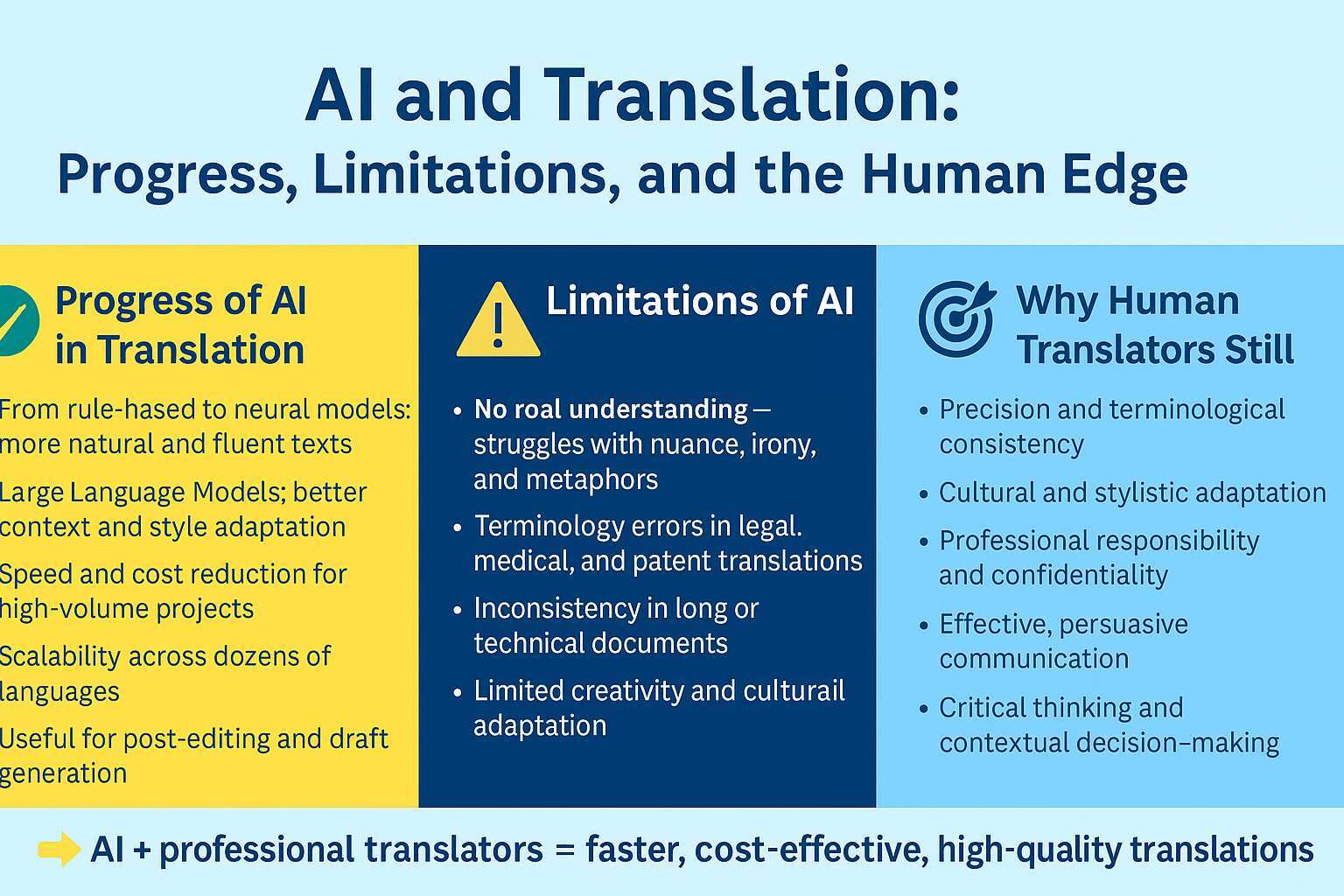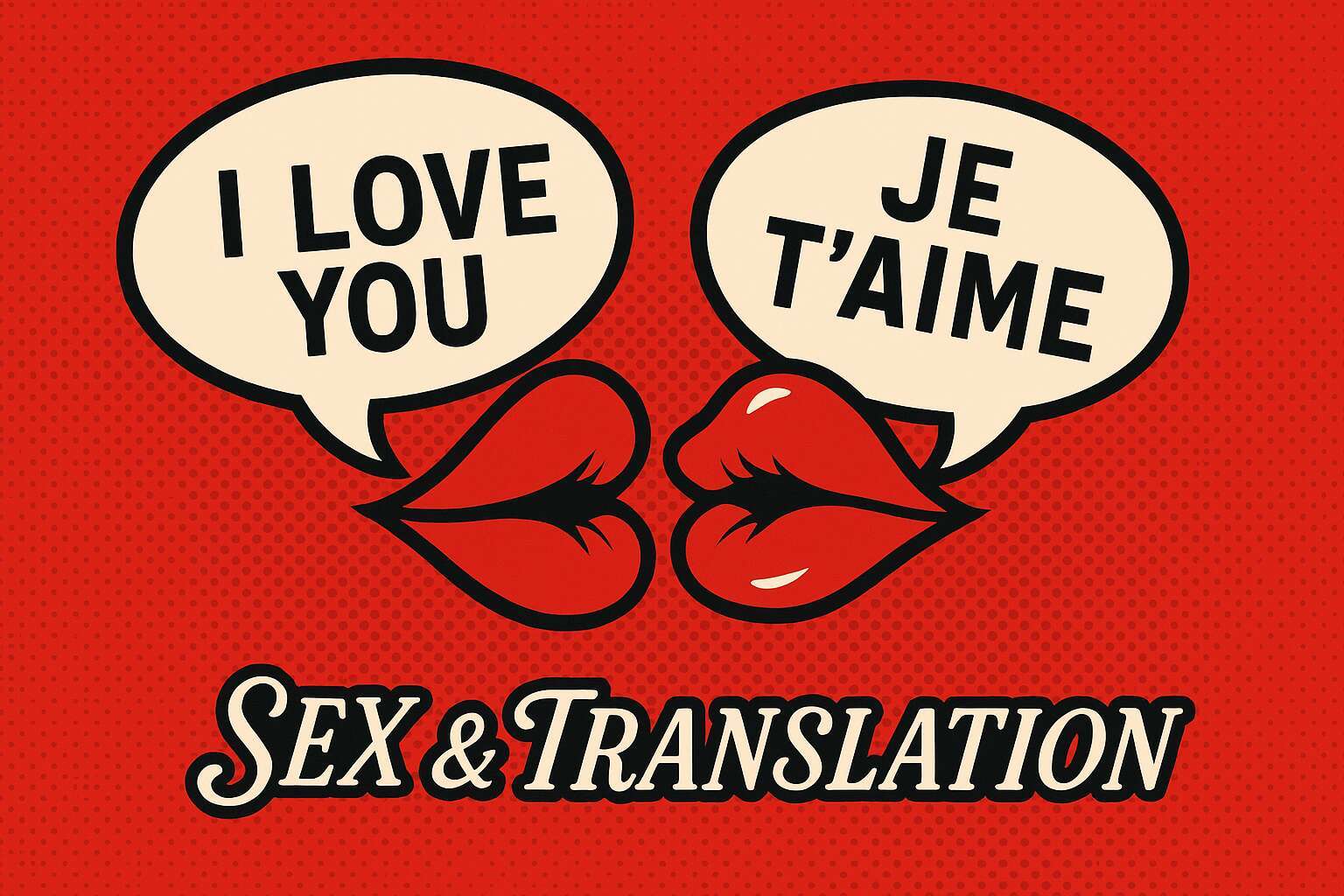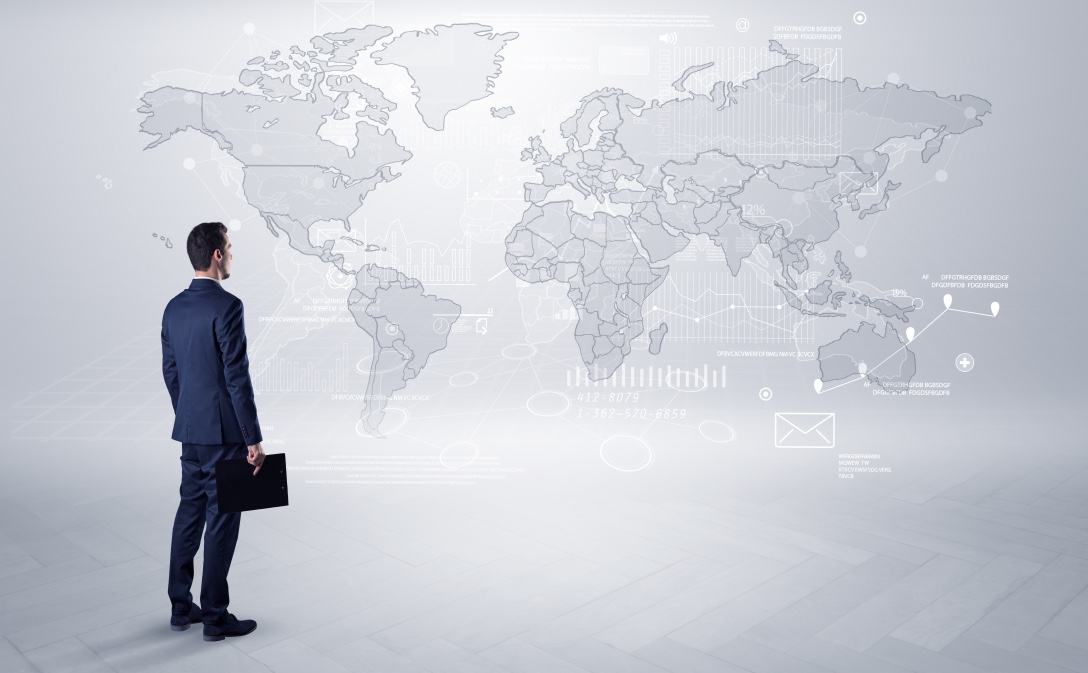Artificial Intelligence (AI) has radically changed the translation industry, making it faster and more accessible. But can it really replace professional human translators? Let’s explore AI’s breakthroughs, its current limitations, and why human expertise remains irreplaceable.
AI’s Breakthroughs in Machine Translation
From Rule-Based Systems to Neural Models
For decades, machine translation relied on rigid rule-based systems, producing mechanical and often inaccurate results. The real game-changer came with Neural Machine Translation (NMT), which generates smoother, more natural texts by leveraging deep neural networks and the attention mechanism.
The Rise of Large Language Models
With Large Language Models (LLMs) such as GPT and Gemini, translation has become context-aware and stylistically refined. These models adapt better to specialized fields — marketing, legal, technical & patents (like InnovaLang’s proprietary system PATREN) — and often produce human-like fluency.
Practical Benefits for Businesses
-
Near-instant translations
-
Cost reduction for high-volume projects
-
Scalability across dozens of languages
-
Better support for professional post-editing
The Limitations of AI Translation
No Real Understanding or Critical Thinking
AI doesn’t truly understand text; it predicts statistically. Cultural nuances, irony, and metaphor are often mistranslated or lost.
Terminology and Consistency Issues
In legal, medical, or patent translation, a single terminological error can have severe consequences. Long documents may also show inconsistency in terminology.
Style, Tone and Cultural Adaptation
Human translators ensure the right tone and cultural localization. AI, though improving, still lacks creativity and communicative intent.
Privacy and Professional Responsibility
Cloud-based MT tools raise confidentiality concerns, and AI cannot be held accountable for mistakes—unlike professional translators.
Conclusion: AI as a Powerful Ally, Not a Substitute
AI is an invaluable tool for speed and cost efficiency, but it cannot replace human expertise. For high-value content, and liability-related reasons, professional translators remain essential to ensure accuracy, cultural sensitivity, and effective communication.
The future lies in collaboration: AI provides powerful tools, while humans deliver the quality that truly engages and convinces readers.






